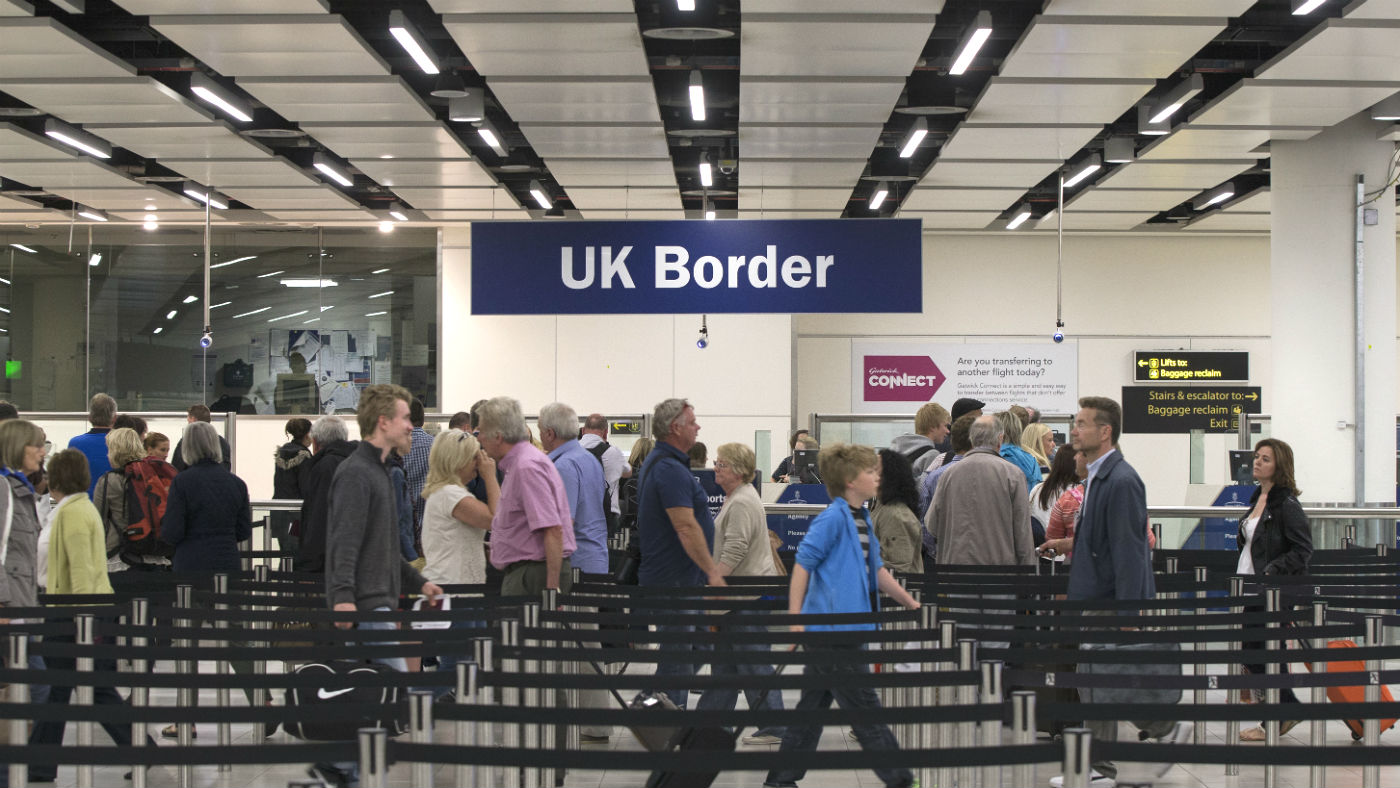Third runway at Heathrow airport
A free daily email with the biggest news stories of the day – and the best features from TheWeek.com
You are now subscribed
Your newsletter sign-up was successful
THE ARGUMENTS FOR
Air passenger numbers are expected to double in the next 20 years and Heathrow, the world’s busiest airport, is already operating at full capacity. It has not been expanded since it was first built in 1946.
It is unusual for a major international airport to have fewer than three runways; this extension is needed to keep Heathrow competitive with its European rivals – Schiphol in Amsterdam, Charles de Gaulle in Paris and Frankfurt am Main. The projected extra 220,000 flights a year could contribute a potential £9bn to the UK economy from travellers using Heathrow as a stop-off point.
The Week
Escape your echo chamber. Get the facts behind the news, plus analysis from multiple perspectives.

Sign up for The Week's Free Newsletters
From our morning news briefing to a weekly Good News Newsletter, get the best of The Week delivered directly to your inbox.
From our morning news briefing to a weekly Good News Newsletter, get the best of The Week delivered directly to your inbox.
Trade unions support the plans and say that the major new building project will create thousands of jobs while it is being constructed and thousands more when it is completed. Those jobs will be especially valuable if the economic downturn continues.
The noise will not be as bad as people think. By the time the new runway becomes operational in around 2020, quieter planes will have been developed.
THE ARGUMENTS AGAINST
With the world threatened by climate change, it would simply be dangerous to encourage more air travel and the pollution it causes.
A free daily email with the biggest news stories of the day – and the best features from TheWeek.com
There are already multi-billion pound proposals for a new London airport built in the Thames Estuary. If such plans come to fruition, there will be no need to expand Heathrow.
Heathrow extension plans are hugely unpopular with the public, and some 50 Labour MPs, including cabinet members, have rebelled against the proposal.
Some London residents fear that a third runway further increases the risk of a devastating terrorist attack by increasing the amount of air traffic over central London.
The third runway will worsen air quality over London. The Environment Agency maintains that the added nitrogen dioxide pollution from a third runway is likely to breach EU regulations. Furthermore, added noise pollution will affect the millions of Londoners who live below flight paths.
Despite the ever-growing number of flights, Heathrow does not necessarily need a third runway. The problem could be solved with better air traffic management on the two existing runways, and by high-speed rail links between British cities. These measures would also ease gridlock on the roads around Heathrow.
The construction of a third runway will mean that 700 houses, as well as schools, businesses and even nature reserves will have to be destroyed.
-
 Alexei Navalny and Russia’s history of poisonings
Alexei Navalny and Russia’s history of poisoningsThe Explainer ‘Precise’ and ‘deniable’, the Kremlin’s use of poison to silence critics has become a ’geopolitical signature flourish’
-
 Are Hollywood ‘showmances’ losing their shine?
Are Hollywood ‘showmances’ losing their shine?In The Spotlight Teasing real-life romance between movie leads is an old Tinseltown publicity trick but modern audiences may have had enough
-
 A dreamy long weekend on the Amalfi Coast
A dreamy long weekend on the Amalfi CoastThe Week Recommends History, pasta, scenic views – this sun-drenched stretch of Italy’s southern coast has it all
-
 Border Force strike may see airports close this Christmas
Border Force strike may see airports close this ChristmasSpeed Read More than 10,000 flights are expected to land at the affected airports over strike days
-
 Home Office worker accused of spiking mistress’s drink with abortion drug
Home Office worker accused of spiking mistress’s drink with abortion drugSpeed Read Darren Burke had failed to convince his girlfriend to terminate pregnancy
-
 In hock to Moscow: exploring Germany’s woeful energy policy
In hock to Moscow: exploring Germany’s woeful energy policySpeed Read Don’t expect Berlin to wean itself off Russian gas any time soon
-
 Were Covid restrictions dropped too soon?
Were Covid restrictions dropped too soon?Speed Read ‘Living with Covid’ is already proving problematic – just look at the travel chaos this week
-
 Inclusive Britain: a new strategy for tackling racism in the UK
Inclusive Britain: a new strategy for tackling racism in the UKSpeed Read Government has revealed action plan setting out 74 steps that ministers will take
-
 Sandy Hook families vs. Remington: a small victory over the gunmakers
Sandy Hook families vs. Remington: a small victory over the gunmakersSpeed Read Last week the families settled a lawsuit for $73m against the manufacturer
-
 Farmers vs. walkers: the battle over ‘Britain’s green and pleasant land’
Farmers vs. walkers: the battle over ‘Britain’s green and pleasant land’Speed Read Updated Countryside Code tells farmers: ‘be nice, say hello, share the space’
-
 Motherhood: why are we putting it off?
Motherhood: why are we putting it off?Speed Read Stats show around 50% of women in England and Wales now don’t have children by 30